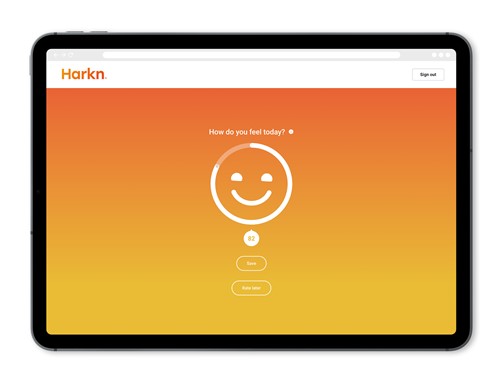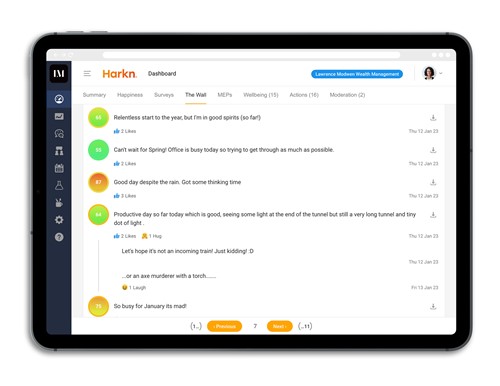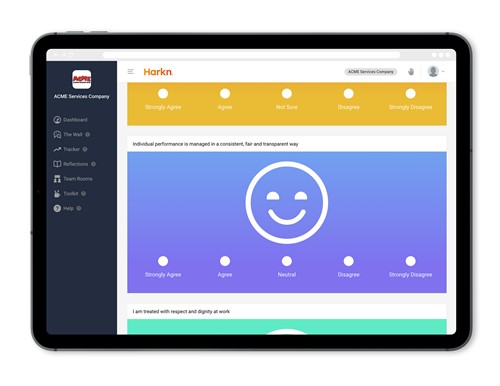In any large organisation, managers are pivotal in shaping the work environment and driving team performance.
However, as many a manager will attest, they face the challenge of ensuring their team remains aligned with the broader organisational goals in an ever-changing context, while also catering to the unique dynamics and needs of their division and its teams.
And that’s all without access to the same tools and insights that the overall organisation uses to gather and make sense of employee sentiment.
If this isn’t challenging enough, work is getting more complicated - teams are more diverse (in every way), projects are more cross-functional, and employees’ expectations have changed dramatically, so understanding the nuanced sentiments and opinions of individual team members becomes crucial.
Of course, listening to employees is not just about keeping a finger on the pulse of employee satisfaction but about leveraging employee voice in order to foster innovation, solve problems, and enhance team cohesion.
Challenges for team managers
Despite their best efforts, managers frequently encounter barriers to gathering honest and specific feedback from their team members.
There are several factors at play here:
Reliance on broad, organisational-level tools
The tools provided by HR or a central function like company-wide surveys often yield generalised insights that lack the granularity needed to address specific concerns within a division. These tools are designed for a one-size-fits-all approach, which dilutes the specificity and relevance of the feedback for individual managers.
Lack of psychological safety
Without psychological safety, employees may be hesitant to share honest feedback due to concerns about confidentiality and the potential for negative repercussions. This fear is exacerbated in environments where there's a lack of trust or a history of feedback not being acted upon constructively.
Cultural and hierarchical barriers
In many large organisations, the prevailing culture and hierarchical structures can stifle open communication. Employees might feel their opinions are undervalued or that there's a disconnect between management and the workforce, leading to a reluctance to share genuine insights.
Information overload and survey fatigue
The frequent use of broad surveys can lead to information overload and survey fatigue among employees, making them less likely to engage meaningfully with yet another feedback mechanism.
Lack of tailored engagement strategies
Without strategies specifically designed to elicit detailed feedback on particular topics or projects, managers miss the opportunity to understand the deeper concerns, ideas, and sentiments of their team members.
These complications not only make it difficult for managers to gain a clear understanding of their division’s specific challenges and opportunities but also hinder their ability to respond effectively to the unique needs and aspirations of their team members.
What if there was a reliable and straightforward way to tap into their insights – and, build trust and engagement with them at the same time?
Well, that is exactly what Harkn does. Our platform is designed to amplify every voice within your organisation and deliver actionable insights at speed.
How Harkn’s live employee feedback supports managers
Here are five ways that you can use Harkn as a manager to get a pulse on what your people really think and feel about specific issues or topics.
-
Leverage Daily Check-Ins

Encourage your team members to share their views on a particular subject as part of their daily check-in routine. Employees can still share whatever they want, but simply asking them for their views on specific subjects can give you in-the-moment insights and an all-important opportunity to explore those views through anonymous dialogue. This can be seamlessly integrated into your existing communication channels.
-
Use the Prompts feature to encourage dialogue
Harkn's prompts feature offers a creative way to solicit feedback. Posing a question or a "complete the sentence" prompt, such as "Inclusion at work means..." as part of the check-in routine, can encourage thoughtful responses and unveil deeper insights into your team's perceptions and experiences.
-
Ask open-ended questions on The Wall

The Questions feature on the Wall provides an opportunity to solicit feedback and explore opinions through dialogue. As a dynamic space where employees can freely express their thoughts and ideas, the Wall is the perfect place for developing a deeper understanding. Questions asked here can be targeted at specific populations, and engaging employees in dialogue of this nature not only fosters a culture of transparency but also invites diverse viewpoints, enriching the conversation around any given topic.
-
Explore topics in depth with Bespoke Surveys

For a more structured approach, Harkn's bespoke survey feature allows you to delve into specific topics with either your entire company or select groups, such as a particular function or even a project team. This approach is ideal for gathering targeted insights and understanding nuanced perspectives across different segments of your organisation.
-
Create a Team Room for focused discussions
Team Rooms are Harkn's anonymous focus group solution for facilitating deep, anonymous, and asynchronous conversations on subjects that matter to your people. This tool enables participants to express their views and opinions without the pressure of immediate responses or the fear of identification. Unlike traditional surveys, the back-and-forth of dialogue allows for a deeper mutual understanding of the issues and the potential solutions.
Empower live employee voice
Keep in mind these two vital considerations when listening to your people:
Live dialogue drives understanding: Remember, the most effective way to grasp diverse viewpoints and foster an open exploration of different perspectives is through ongoing dialogue. Surveys alone can't capture the richness of conversation that Harkn facilitates.
Anonymity is essential for psychological safety: Harkn's commitment to anonymity means that everyone within your organisation can share their true thoughts and feelings without fear of reprisal. This level of safety is crucial for authentic and constructive feedback.
By incorporating some or all of these five approaches into your feedback and engagement efforts, you're not just listening; you're actively engaging with your team in a way that respects their voices and contributions.
These tools can help you foster an inclusive culture that guarantees psychological safety, encourages collective sensemaking, and promotes aligned action
Listening as broadly as possible not only enhances your understanding of your organisational culture but also empowers your people to play an active role in shaping it.
Find out more about Harkn’s live employee voice capabilities here, or book a virtual coffee with us to better understand how we can help your organisation.





